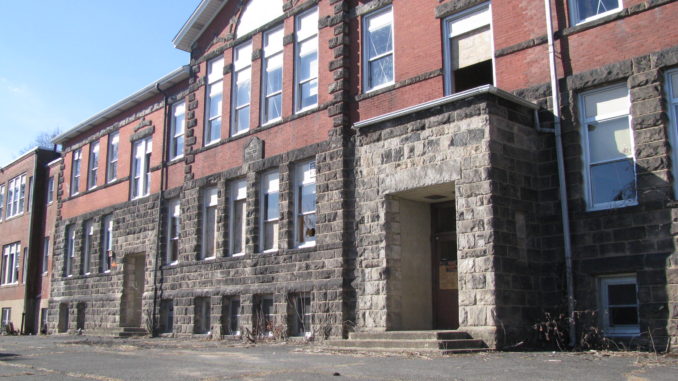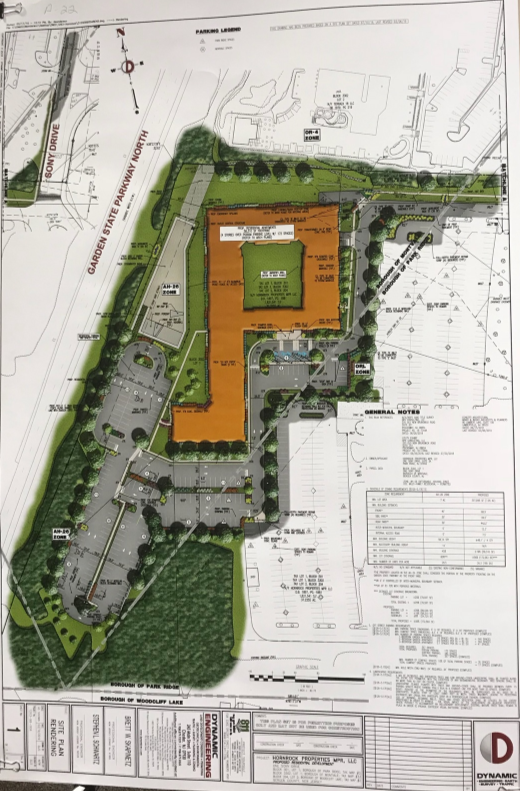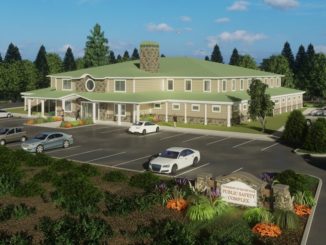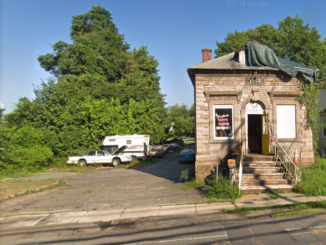
CLOSTER, N.J.—Affordable housing and historic preservation are joining together in Closter as Zoning Board officials gave approval Aug. 21 to a preliminary site plan that will provide 35 affordable housing units—a cornerstone of Closter’s affordable housing settlement— and keep the historic Village School’s facade intact for future generations.
A unanimous Zoning Board of Adjustment voted 7-0 to approve a use variance to convert the former Village School at 511 Durie Ave. into a 100 percent affordable housing complex—proposed to be called the “Village Knoll.”
Current zoning allows only single-family homes at the site. The development is a partnership between the Borough of Closter and Housing Authority of Bergen County.
An additional structure will be built attached to the original school building, which recently underwent asbestos remediation.
That structure’s facade will reflect architectural details in character with the existing building, a 120-year-old historic Romanesque structure that will be preserved and restored to feature its period architecture and stone work.
Following the approval, the partnership must seek further approvals before construction can begin.
Other approvals needed include Bergen County Planning Board for preliminary site plan approval and a county soil erosion and sediment control permit. Traffic and stormwater impacts remain under county purview.
The Zoning Board approval also included about a dozen additional variances for building height, impervious coverage, minimum side yard setbacks, building signage, side and rear setbacks, sidewalk width, accessory building setbacks, parking stall dimensions, and a reduced off-street loading area.
‘A keystone development’
“This is a keystone development as part of the court settlement” for affordable housing obligations, said Joseph Bianco, Zoning Board of Adjustment chair.
“This is an inherently beneficial use…under the Superior Court [settlement] agreement we agreed to build this to fulfill our obligations,” said Bianco.
“This will integrate affordable housing into a historic building,” he added.
He said the building will include seven one-bedroom units, 19 two-bedroom units, and nine three-bedroom units.
Due to additional approvals needed before construction can begin—and an application for federal housing funding which must be submitted this fall and await funding—he said he could not provide a timeline for estimated completion of the proposed development.
Bianco said the county Housing Authority will build, manage and maintain the site for Closter. In addition, the facility will pay taxes under a recently approved payment in lieu of taxes contract, which estimates annual taxes at $21,645 for the next 30 years.
The Village School was built in 1900, and historic commission chair Tim Adriance previously told Northern Valley Press that “adaptive reuse and renovation” of it for affordable housing would not conflict with preservation of its historic architecture, which is the intent of the preliminary and final site plan approved.
After Village School was purchased in late 2017 for $2.75 million by Closter for then-proposed affordable housing, asbestos remediation was required and had to be completed.
The borough signed its agreement with Housing Authority of Bergen County early last year and its affordable housing settlement, with 35 units planned at Village School, was approved by Superior Court last July.
Bianco told Northern Valley Press that when completed, the newly restored historical structure will fully integrate affordable units and provide many benefits to its future residents.
These include being one block from downtown, access to public transportation, and access to nearby stores and a supermarket.



